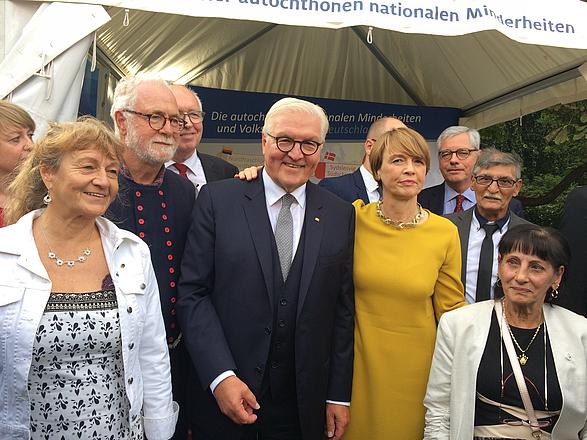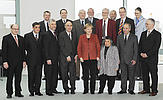
In Germany
In Germany major parts of the minority policy is decided not by the federal bodies but by each German state. Besides three of the four recognized minorities in Germany are present only in one or two states – Danes in Schleswig-Holstein, Friesians in Schleswig-Holstein and Lower Saxony, and Sorbs in Brandenburg and Saxony. Only the Sinti & Roma live more widespread in the country.
Furthermore, education and culture – policy issues that are in close connection with the minority policy – are all decided by the states without any federal interference. (For a closer look at the political and administrative bodies of Germany please check out www.britannica.com/search)
In Schleswig-Holstein the SSF represents the Danish minority at official events in close cooperation with the SSW – the political party. Minority politicians have achieved that Schleswig-Holstein contributes to Danish nurseries and to the cultural work performed by the SSF. Additionally, Schleswig-Holstein in 2015 decided a linguistic policy aiming to promote the use of the Danish language in Schleswig-Holstein.
The SSW has councilors in the tree counties in South Schleswig in the two major cities and in 68 municipalities. 176 local and regional politicians work hard to ensure that the minority has equal rights also on the local and regional level.
Schleswig-Holstein as well as the federal government have appointed commissioners responsible for contact and cooperation with the minorities.
The SSF is member of the German "Minority Council", in which all four autochthonous minorities in Germany cooperate and advocate common minority issues towards the federal government and parliament.



